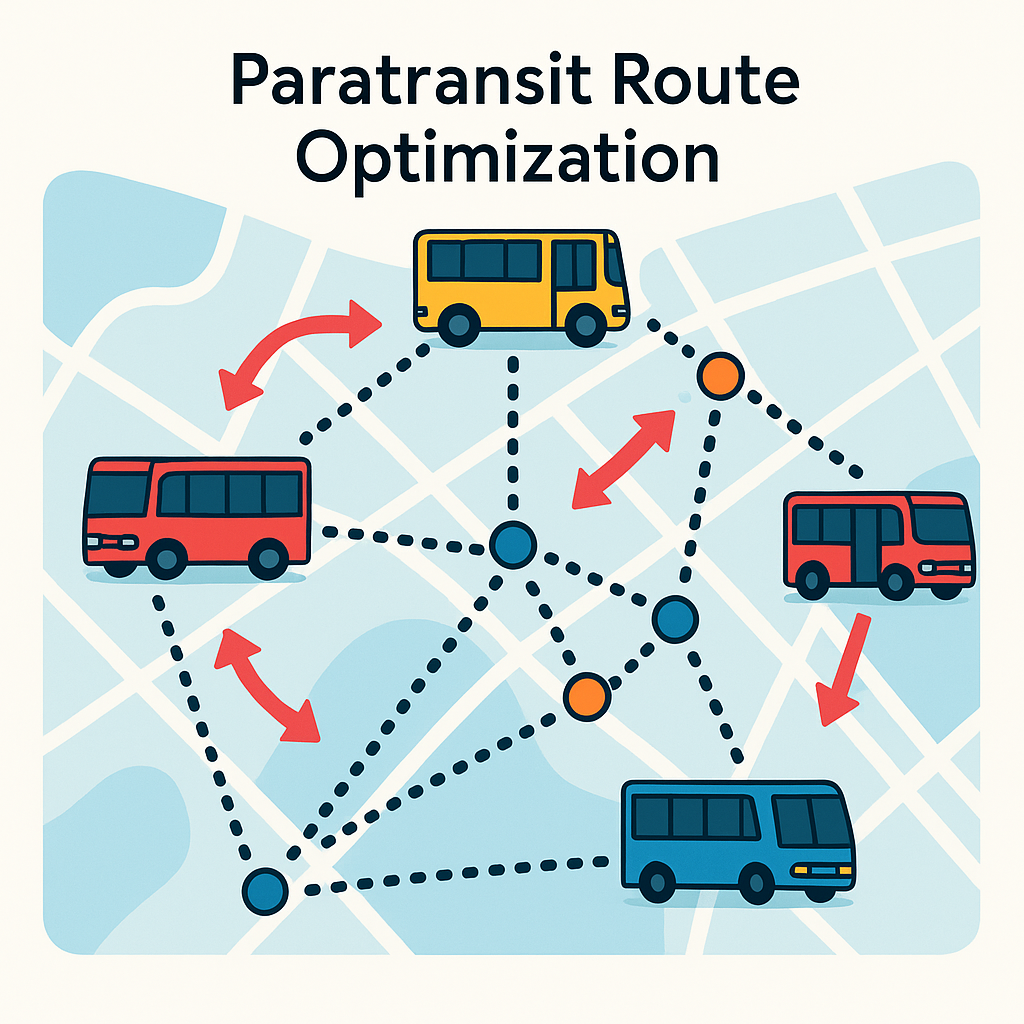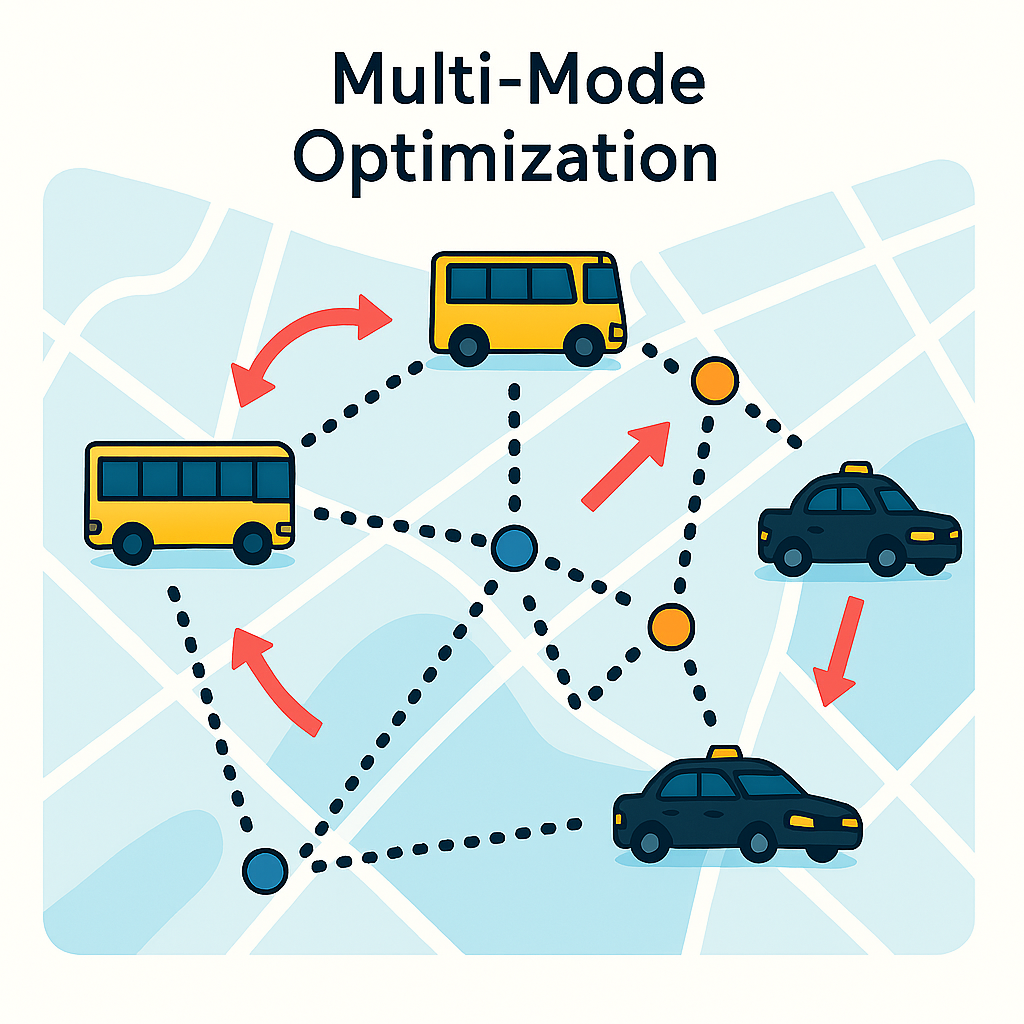Optimization Projects
Efficient Scheduling System for Paratransit

Problem: ADA paratransit services suffer from high costs and inflexible schedules that leave vehicles idle while riders wait.
Approach: I designed a nested‑decomposition algorithm that combines column generation and temporal decomposition to assign requests across paratransit vehicles, accessible taxis and ride‑hailing services.
Results: Deployed in Washington, DC, the system achieved roughly 15 % cost savings and improved service reliability.
Skills: Python, GAMS, network optimization, column generation.
Schedule Negotiation under Uncertainty

Problem: Paratransit operators must negotiate pickup times with riders who have diverse value‑of‑time preferences, causing mismatched schedules.
Approach: I developed a nonconvex mixed‑integer nonlinear model and a fix‑and‑optimize heuristic to negotiate pickup times and adjust schedules in real time.
Results: The deployed system increased rider acceptance by 20 % and delivered a 3.5× return on investment.
Skills: Python, GAMS, CPLEX, heuristic algorithms.
Collaborative Routing for Multiple Operators

Problem: Independent paratransit operators operate in silos, leading to empty vehicles and unserved demand.
Approach: I proposed a demand‑exchange platform using a mixed‑integer programming model with column generation to bundle and reassign requests across operators.
Results: Field tests showed an 8 % improvement in operator revenue and a 12 % reduction in empty‑leg mileage.
Skills: GAMS, Python, mixed‑integer programming, column generation.
Multi‑Mode Paratransit Optimization

Problem: Traditional paratransit relies solely on dedicated vehicles and fails to leverage ride‑hailing and taxi capacity during peak periods.
Approach: As a collaborator, I extended mixed‑integer models to integrate ride‑hailing and taxi modes and developed warm‑start heuristics to process real trip and supply data.
Results: The deployment delivered 13 % cost savings and improved peak‑period service coverage.
Skills: Python, MATLAB, GAMS, heuristic design.
